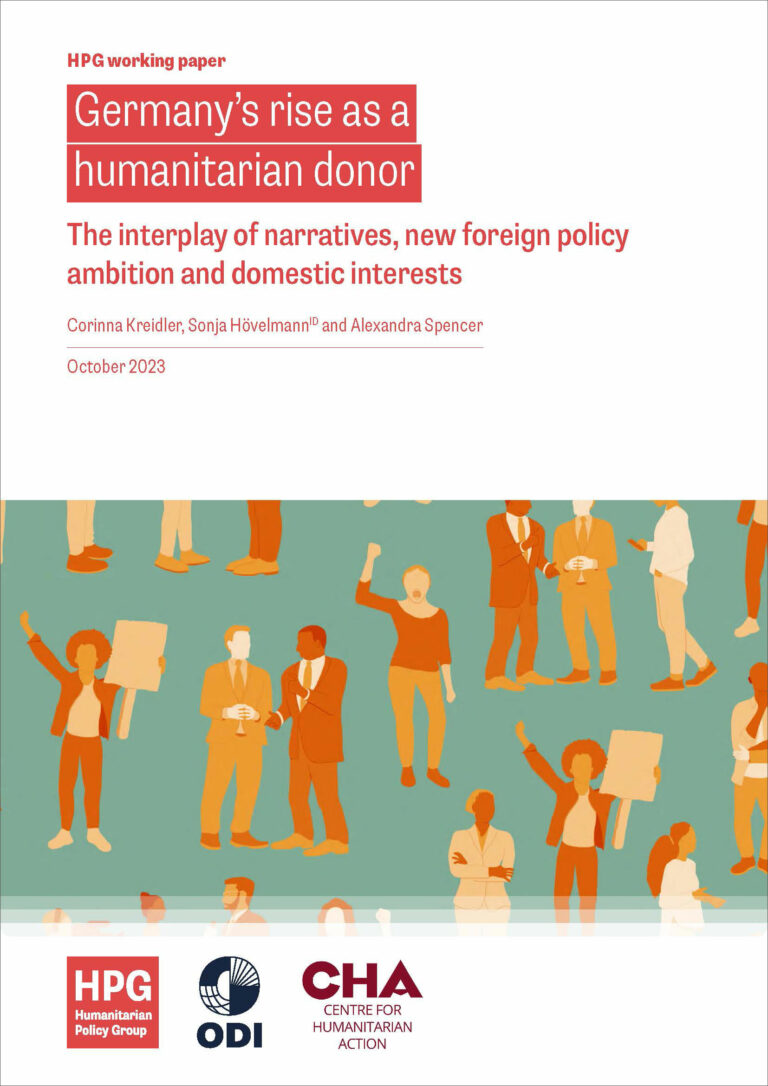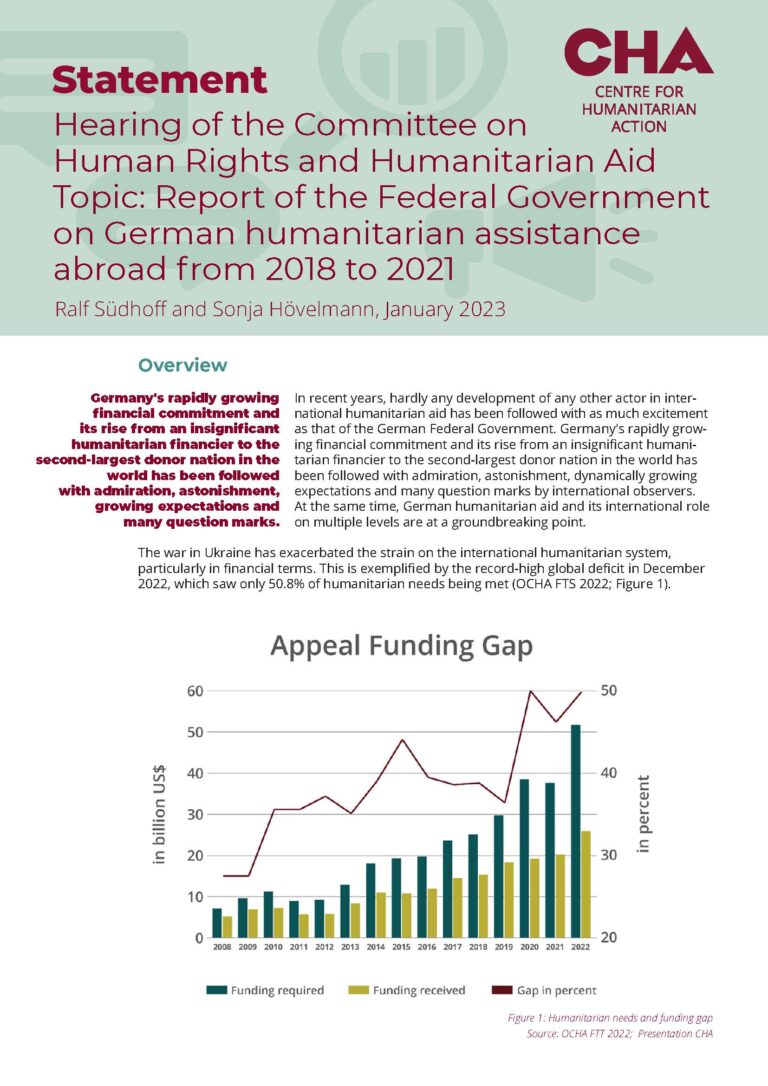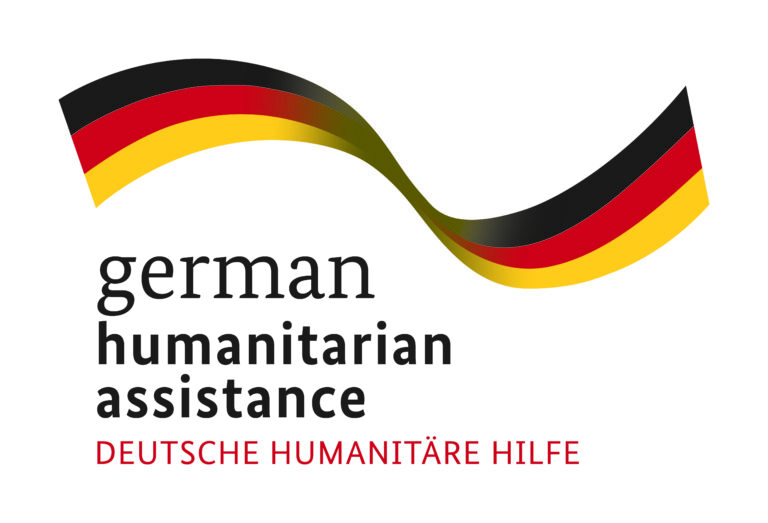| Author: | Corinna Kreidler, Sonja Hövelmann and Alexandra Spencer |
| Date: | 11.10.2023 |
| Downloads: |
Paper (DE)
Paper (EN) Executive Summary (DE) Executive Summary (EN) |
The interplay of narratives, new foreign policy ambition and domestic interests
The international humanitarian system is faced with ever-growing challenges of sufficiency, efficiency, effectiveness and legitimacy – challenges that cannot be overcome without political will.
This political will can be influenced by a variety of factors – among them, powerful narratives emanating from governments, politicians, the media, and humanitarian organisations themselves. Understanding these narratives, how they are constructed, how they change over time and the mechanisms through which they influence policy decisions is key to making the case for humanitarian assistance.
This paper focuses on Germany as a case study country. Germany’s rise to becoming the second-largest humanitarian donor is exceptional in a humanitarian system that is plagued by the perennial challenge of sufficiency, where increasing volumes of private and institutional funding cannot keep pace with rising humanitarian needs.
How have narratives at play amongst the population, media, government and aid agencies enabled and justified the significant increase in Germany’s humanitarian assistance budget? What role is played by the intersection of the stories that actors construct and disseminate to justify humanitarian assistance, and how do they influence the political will of policymakers and decision-making processes?
Key Messages
- Political will and policymakers’ beliefs are not only influenced by evidence but also by powerful narratives emanating from governments, politicians, the media, and humanitarian organisations themselves. Understanding these narratives and the mechanisms through which they influence policy decisions is key to making the case for humanitarian assistance and increasing humanitarian budgets.
- Media coverage of humanitarian assistance in Germany is largely benign and uninterested in specialised humanitarian policy debates and features minimal negative scrutiny. Narratives regarding the moral imperative of aid, humanity and solidarity were largely unchallenged, creating an enabling environment for the expansion of the German humanitarian assistance budget.
- The confluence of changing foreign political ambitions and interests with an enabling media and widespread public support, together with a robust economic situation, meant that the narratives proved to be particularly compelling.
- Humanitarian actors played important roles in utilising and amplifying simplistic narratives about how aid can decrease migration, despite emerging evidence to the contrary. This narrative was seized upon by German politicians and the media and became an enabling factor in increasing the humanitarian budget, including for Syria and the region.
- There is tremendous, short-term benefit in linking – through (false) narratives – assistance with national interest. But without a strong foundation this narrative and thus basis for aid can be very fragile as the context changes. Aid actors may find it more beneficial to link aid to longer-term public values and commitment to aid.





